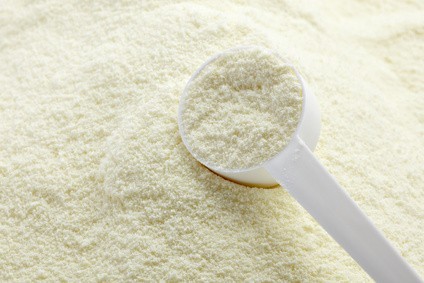
The dairy sector is concerned about the fall in the international value of powdered milk, which has not found a floor, and Argentine companies are beginning to export at a loss.
Rising costs after the 22% devaluation, which is being transferred very quickly to prices, falling international values and the beginning of the strong milk production season, which will increase stocks, make the outlook not optimistic.
“There is a different market due to the Chinese economic crisis. It is changing the market. Fonterra’s main Chinese customers (New Zealand market) did not buy anything in the 100,000 Tn Tender of August”, explains Alejandro Maurino, CEO of Dairy Corp, a company specialized in the global dairy industry with more than 20 years of experience.
This is how he graphs one of the main reasons for the fall in prices.

The Asian giant does not demand and New Zealand, which is the main producer (and exports 90% of its production to China), is left with an overstock.
This oversupply, in a relatively small market, has a significant impact on prices.
Global Dairy Trade (GDT), the worldwide platform to follow dairy trading, marked a new price decline to US$ 2,548/t, the lowest average since June 2020, and US$ 1,185 below the September 2022 peak.
Thus, the outlook for the next six months in world markets does not show positive signs for dairy products.
The coordinator of the Observatory of the Argentine Dairy Chain (OCLA), Jorge Giraudo, warned that the forecast for the September future price stands at US$ 2,475, a figure that confirms the downward trend.
Previously, 40% of exports went to Algeria, just over 30% to Brazil and the rest to other markets.
However, at current prices, the Algerian market “cannot be accessed”.
Giraudo explained: “That left Brazil, a country with which Argentina shares the common external tariff, which grants protection to Mercosur members by means of a 28% tariff. However, with the fall in international prices, devaluation and withholdings, the numbers also stopped closing,” he explained.
Although Maurino recognizes that, despite the effects of the drought, milk production is at a good level, the problem after the drop in exports lies in how dairy companies will be able to finance stocks.
“There is between 25% and 30% of production that is normally exported, which will have to be seen if it is exported at break even prices or kept in stocks, which leads to the question of how they will be financed,” he analyzed.
“Nowadays companies have to work very finely on costs, manage and gain in productivity”, said Maurino, pointing out the scarce assistance from the State.





















